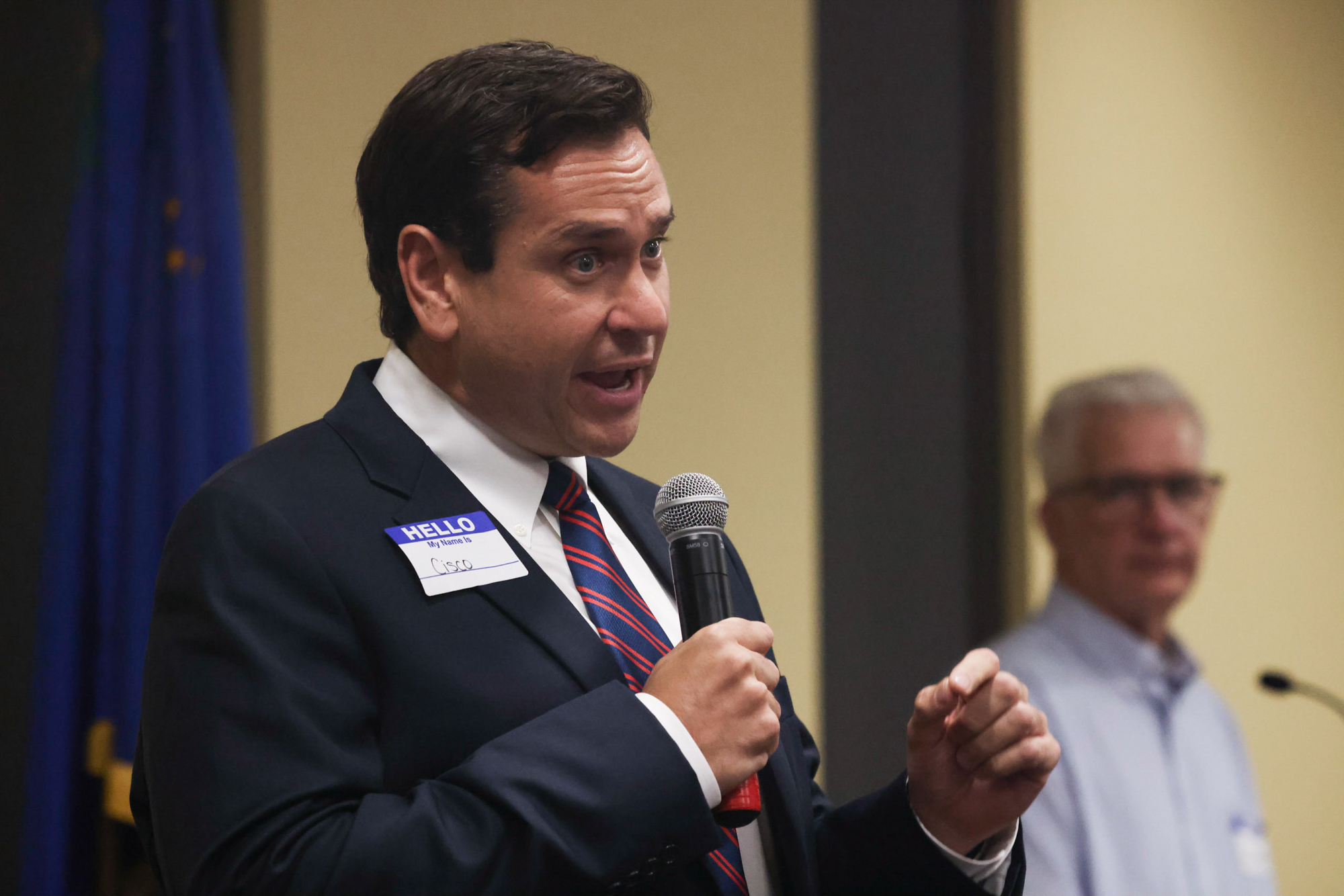Nevada Secretary of State Cisco Aguilar on Thursday admitted that he was frustrated by the pace of election results this year, and that he would be working with legislators to determine ways to speed up the counting of ballots.
The results of tens of thousands of votes were not released until more than one day after polls closed, including a batch of 54,000 mail ballots in Clark County that were dropped off at election sites on Election Day.
In an interview with The Nevada Independent, Aguilar said many of the ballot counting difficulties likely stemmed from staffing levels in Clark and Washoe counties, despite efforts by both counties this year to accelerate ballot processing.
Aguilar has been complimentary of how the state’s elections ran this year — and he reasserted Thursday that there was no evidence of widespread voter fraud — but he acknowledged there is room for improvement.
Notably, he suggested that the state wanted to work with the U.S. Postal Service to provide public data about how many mail ballots might be outstanding and when those ballots are expected to be received. Clark and Washoe mail ballots have markers that allow for tracking while they are en route to their final destination, but it was not available during this election cycle, leaving the public in the dark about how many mail ballots may be left to be counted.
He said he has met with legislators about possible reforms and is “constantly in conversation” with the office of Republican Gov. Joe Lombardo, who said after the election that he was also frustrated with the ballot counting processes, and that he would work to find a bipartisan solution next year. Meetings with Clark and Washoe officials are also scheduled.
“I don’t have definitive answers to any of the issues, but understanding the concerns are important,” Aguilar said.
This was Aguilar’s first general election as Nevada’s top elections official, and the Democrat confirmed for the first time on Thursday that he would be running for re-election in 2026.
Nevada officials had expected ballots to be counted faster this year thanks to enhanced technology in Clark and Washoe counties, but Aguilar said both counties encountered difficulties.
In Clark County, for example, Aguilar recalled seeing tabulation machines sitting idle on election night, even as the roughly 54,000 mail ballots dropped off at elections centers on Election Day were ready to be processed.
“I think it’s a staffing question, more than anything else,” Aguilar said.
Stephanie Wheatley, a Clark County spokesperson, said that mail ballots received on Election Day started being processed late that evening, and that mail ballots could not be tabulated while officials were processing flash drives containing votes cast in person on Election Day
Meanwhile, in Washoe County, officials were planning to use a new machine that can sort ballots and automatically verify signatures, but decided before Election Day to no longer automatically verify signatures. County spokesperson George Guthrie said at the time that it was not a reason for ballot processing delays.
“The bottleneck there was the manual signature verification,” Aguilar said. “And again, it was human capacity, not machine capacity.”
Guthrie declined to comment Thursday.
Although Aguilar said he is unsure of what election reform might look like, he is not looking to change the state law that allows mail ballots postmarked by Election Day to be counted up to four days after Election Day. He also indicated that there would not be efforts to cut down on in-person voting sites amid the continued popularity in mail voting because mail voting still made up less than half of ballots cast this year.
This was also the first general election under the state’s new centralized election management and voter registration system that was designed to speed up the state’s release of election results and reduce registration errors. Previously, the state operated under a bottom-up approach, with each county having its own processes for registering voters, running elections and reporting results.
Clark County will merge with the new statewide system next year, which Aguilar said will allow things to go smoother.
The new system has received backlash for further straining understaffed local election officials, who had to adopt the system on top of their many other responsibilities this year. The Legislature had required the project to go live this year, and Aguilar said he expects much less strain on local election workers because the system is now active.
The state also broke its record for signature cures completed this cycle, resolving more than 23,000 signature issues on mail ballots but not counting a record 9,000 ballots because of ineligible signatures. Nevada requires those voting by mail to sign their name; that signature must match one on file with the state or the ballot will be flagged as needing a cure.
Asked how this process can be improved, Aguilar pointed to how the share of ballots needing signature cures differed greatly in each county, with about 5 percent of Clark and Washoe mail ballots requiring signature curing, but that number being much lower in rural counties.
“It’s the consistency and training of the individuals that are going to do the signature [verification], making sure everybody’s using the same standard that’s required in state law,” Aguilar said.
Although Aguilar said “there was no widespread fraud,” people continue to doubt the state’s election results, and dozens of Clark and Washoe residents objected to the counties’ certification of the results last week, often because of how data was reported online.
He said Clark’s entrance into the centralized voting system and working with the Postal Service to track mail ballots are ways to increase voter trust.

